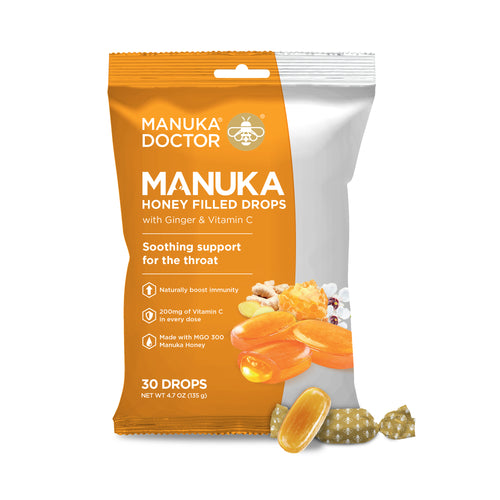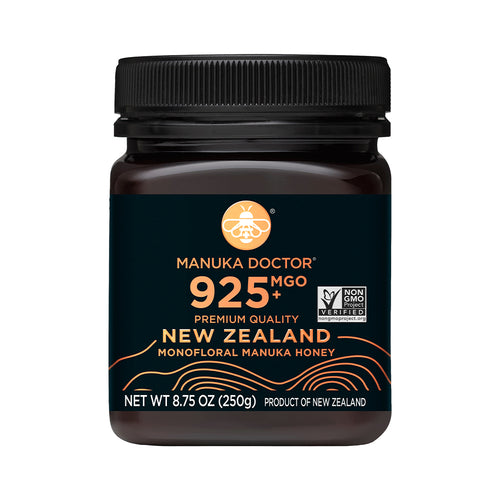1 cup honey = 350g
1 cup sugar = 250g
1 tablespoon honey = 30g

- Always store honey at room temperature. As honey matures, it naturally thickens or crystallises. If you wish to have it runny, remove the lid from the jar and place it in a bath of warm water or just heat it for a few seconds in the microwave. It is best stored out of direct sunlight in a well-sealed container.
- To measure honey, it is easiest using a spoon that has been dipped in hot water. Alternatively, spray or oil your measuring cup, and warm the honey to pour into it.
- When using honey as a substitute for sugar in cake recipes, use the same weight of honey as sugar but reduce the liquid by one-quarter.
- When baking, reduce the cooking temperature by 15°C. Because of the fructose content, honey caramelises at a lower temperature than sugar.
- Be aware of the different flavours of honey. Generally speaking, the darker the honey, the stronger the flavour.
- In recipes calling for white sugar, try substituting light honey; for recipes using golden syrup or treacle, use dark honey.
- To neutralise the honey’s acidity, it is advisable to add ½ teaspoon baking soda for each cup of honey used.
- To keep whipped cream firm, add a teaspoon if mild-flavoured honey during beating.
- Honey has nearly twice the energy value of sugar, i.e. it is nearly twice as sweet. If altering recipes, start by using 50 percent honey, e.g. ½ cup sugar = 1 tablespoon honey and 2 tablespoons sugar.
- Take care when using honey in yeast recipes – the powerful antibacterial/antifungicidal properties can interfere with the yeast action. Use a mild honey or add when the fermentation is complete. Like sugar, honey can break down gluten, the protein necessary to hold bread dough together. Use strong flour for best results.
- When making yoghurt, the same applies. The antibacterial action usually inhibits the yeast culture. Add the honey when you are ready to serve.
- When next baking try adding 1-2 tablespoons of honey with the liquid ingredients. Your mix is more moist and will keep fresher for longer. Honey is hygroscopic. It attracts moisture; cakes will stay fresher, but biscuits may go soft and more chewy.
- For your lattes, a little honey will give your trim milk more volume.
- When heating honey always use a large pot and low heat. It will bubble and foam up dramatically as it heats, so watch carefully to avoid accidents.
- All honey is best stored below 20°C in airtight containers out of direct sunlight.
Read more: Should I take Manuka honey everyday?






